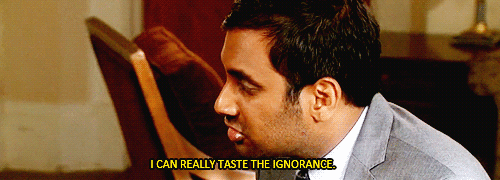Caribbean religions have long been misrepresented throughout the world, and can be something as simple as referring to the practice as “Jamaican Voodoo”, as seen in a 2013 BBC article discussing the possibility of the outlawing of Obeah being lifted. While the actual discussion within the article is less misleading about the practice itself in that it doesn’t depict it as an inherently malicious, evil set of beliefs, as we all know, many online readers simply view the title and make assumptions based solely on that. Lumping unique religions into one misleading category can be problematic because as opposed to comparing and contrasting the similarities and differences between Jamaican Obeah and Haitian Vodou, it categorizes both into a mainstream, uninformed definition of ‘Voodoo’.

However, there are some sources that go deeper. In 2012, VICE published an article entitled “Jamaica—Obeah Magic Man” and an accompanying video, in which they traveled to Jamaica to visit an Obeahman. While the narrator seemed to want to discover both the good and the bad within the practice of Obeah he seemed to do a very surface-level attempt at research.

At one point in the video, they even took time to point out a “vagina candle”—literally a candle in the shape of female genitalia—in the shop.
Hey guy! Every 13-year-old boy in the history of forever has laughed at the word “vagina”; so glad you could join that club during research of a merited religion.

In addition, using descriptive language throughout such as, “flamboyantly wacky” and “sorcerer” to describe the Obeahman himself, and phrases such as, “encyclopedia of the occult” and “charlatanism and showmanship” to describe the work he did, creates a type of rhetoric that dismisses a deep and intense practice into superficial, fake magic spells. The information he presented and his first-hand experience could have been beneficial, if paired with even five minutes of research, as opposed to a condescending tone.
One of the most blatantly problematic portrayals of Obeah, however, isn’t its misrepresentation as another religion or mockery, but something far more serious. In many instances, Obeah is feared and looked upon as something inherently evil. A 2016 article, “Obeah: Who Were The Feared Shadow Killers Of Jamaica?” does just this. They start by noting why practicing Obeah was considered illegal by saying it was due to the fact that many were believed to be casting evil spells on others and working black magic in secret. They took on the name “Shadow Killers” because it was said that they could kill people by capturing their shadows. It is not until a lone sentence at the end that states, “there are some modern Obeah men and women who say they can help with all manner of things, from curing illness to removing curses”.

However, this does not make up for the fear mongering throughout the rest of the article. Interestingly enough, this source quotes the informative book Creole Religions of the Caribbean, by Margarite Fernandez Olmos and Lizabeth Paravisini-Gebert, on a basic definition of Obeah. So how can an author, with all the correct information at their fingertips, still remain so misguided?
While Pukkumina/Kumina has significantly fewer resources available, it is still not immune to misrepresentations, and similarly to Obeah it is also often feared. Let’s start with its name alone. A common, and derogatory, title for Pukkumina is ‘Pocomania’, which by a simple Google search immediately comes up with a blurb that says it is possibly from the Spanish “a little madness”.

In other words, you have to be slightly crazy to practice something so silly! In reality, this is clearly far from true. Kumina is specifically tailored to fit the needs of the community it serves, while still holding a core set of spiritual beliefs to be true. Upon further research, a 1939 film directed by Arthur Leonard, titled Pocomania with the alternate title The Devil’s Daughter, is an extreme misrepresentation of Pukkumina.

The cover pictures alone instill fear in the viewer right from the start.
This horror film is described as being about a daughter who inherited her father’s banana plantation in Jamaica and must manage it despite being disturbed by the continuously increasing sound of drums—a very integral part of the religion itself.
~Kayla Dalton

